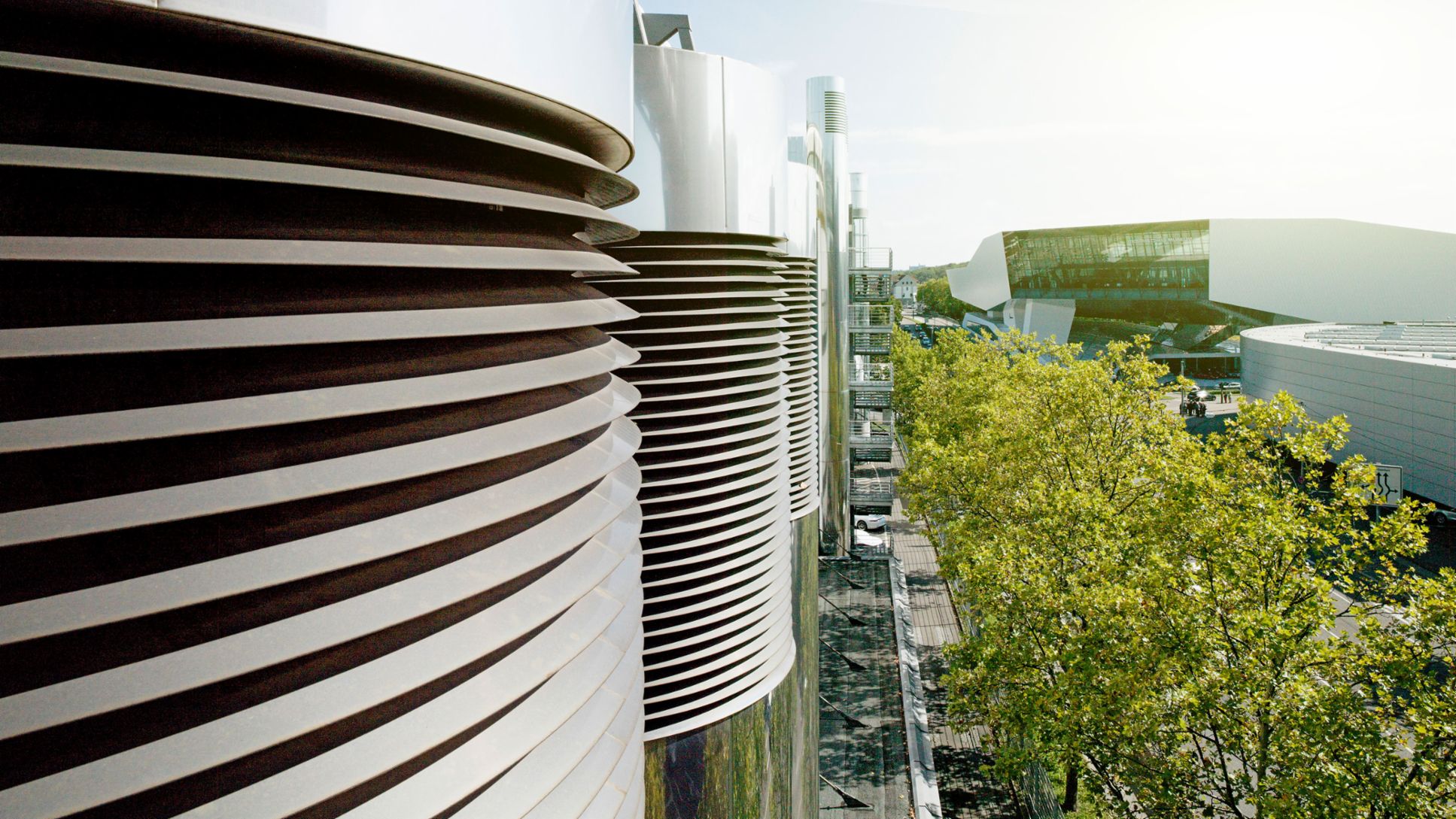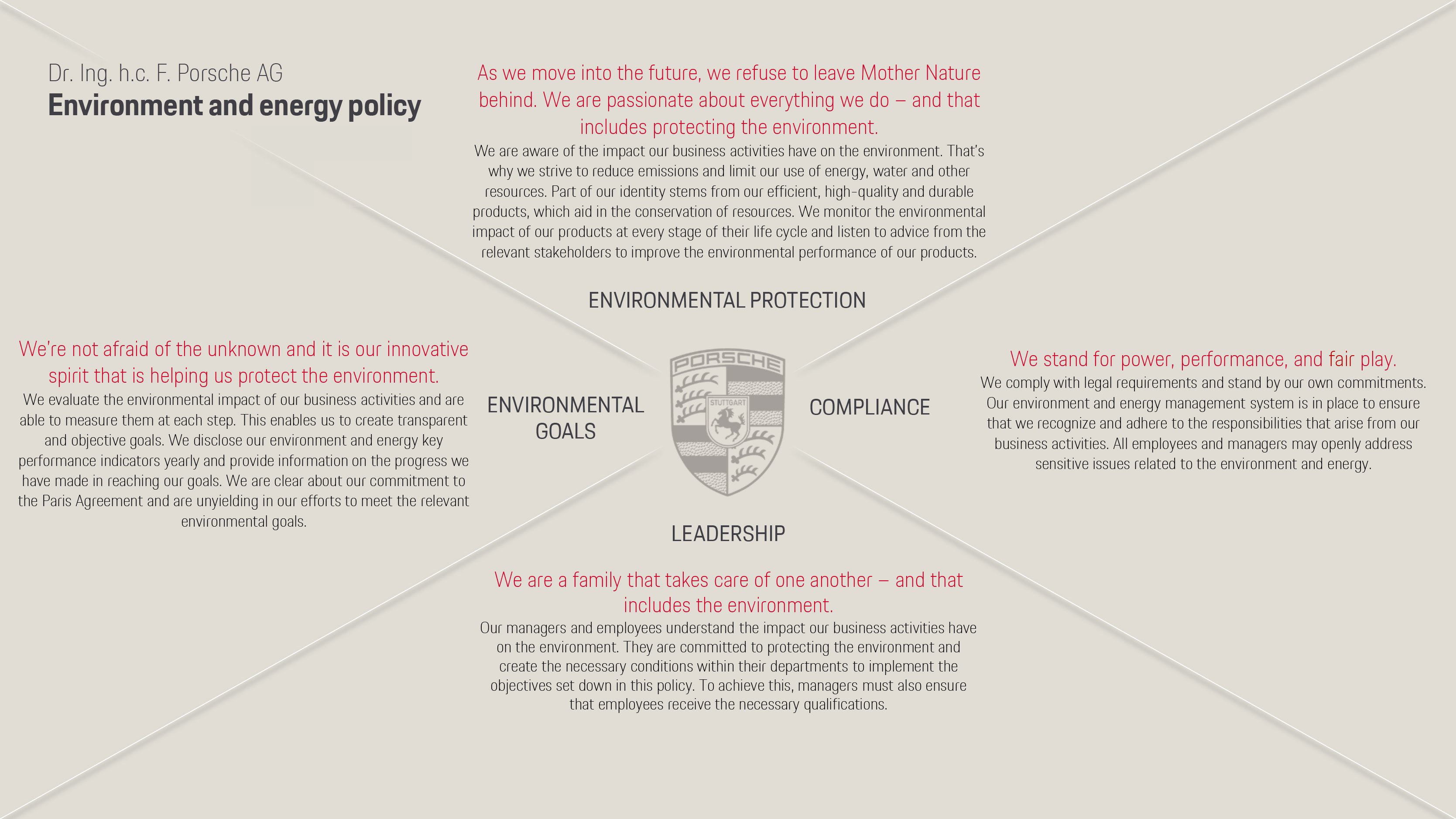"With our updated environmental and energy policy, we have adopted clear rules of conduct in order to live sustainability even more consciously and consistently at Porsche," says Oliver Blume, Chairman of the Board of Management of Porsche AG. "We are clearly committed to the Paris Climate Agreement, use resources sparingly and, for example, continuously reduce our water and energy consumption in order to sustainably reduce the environmental impact of our business activities.”
"We are clearly committed to the Paris Climate Agreement.” Oliver Blume
Porsche's environmental and energy policy sets out clear guidelines in four fields of action: environmental protection, environmental goals, management conduct and compliance. In this way, the environmental effects of the company's business activities are made measurable and transparent targets are derived, the progress of which is reported annually. Particular attention is paid to the careful use of resources: throughout the entire value-added chain, Porsche is working to continuously reduce the impact of all products and activities. A holistic approach is important to the company. This means that not only the emissions of its own production are assessed, but also the entire product life cycle of the vehicles - from material extraction to recycling.

"The hallmarks of our products are efficiency, high quality and a long lifetime. The economical use of resources is part of our identity and an incentive never to rest on our laurels," says Albrecht Reimold, Member of the Board of Management of Porsche AG responsible for Production and Logistics. "We therefore consider the effects along the entire life cycle. Our vision is a Zero Impact Factory. The factory without environmental impact closes material cycles and the raw materials used are returned to a production process at the end of the vehicle's life."
The new guidelines make it clear that environmental protection is a task for the entire company. Against this background, all 35,000 employees are required to commit themselves to environmental protection and to create an appropriate framework for implementing the principles in their area of responsibility. To ensure this, Porsche offers various qualification measures and information opportunities. In addition, employees are sensitised to openly address critical environmental and energy issues.
Within the framework of the environmental and energy management system, Porsche is thereby ensuring that obligations arising from business activities are identified and taken into account, and that legal requirements and self-imposed obligations are complied with.


